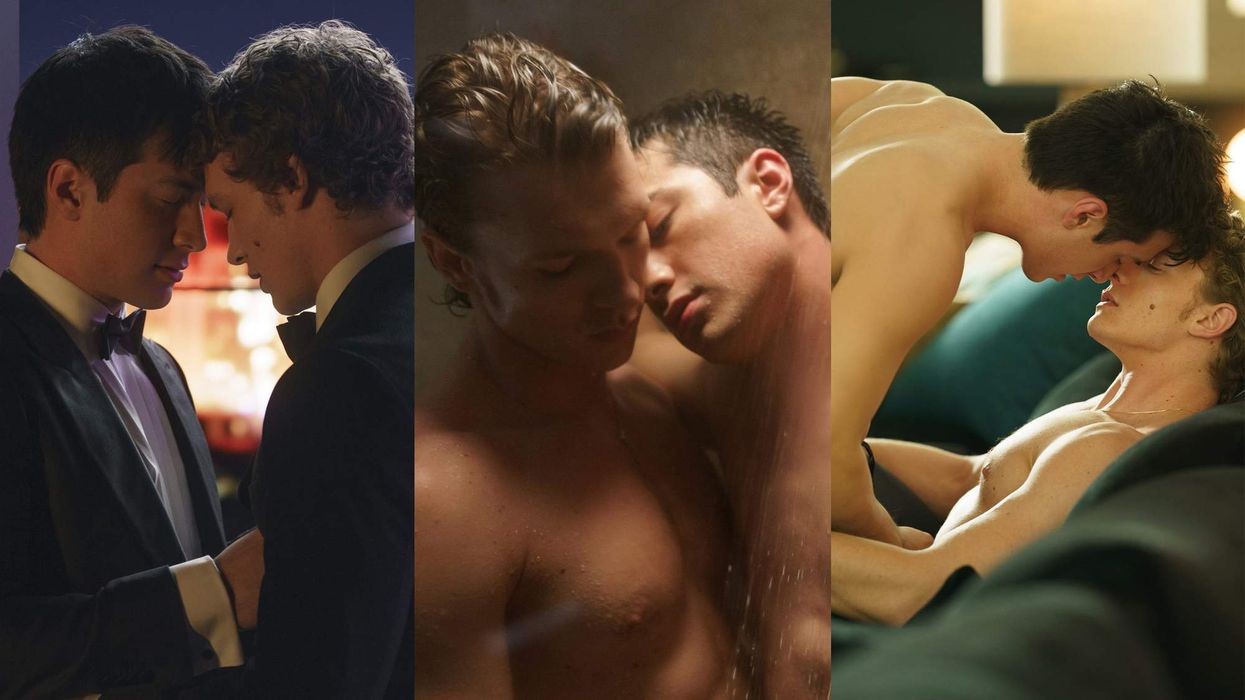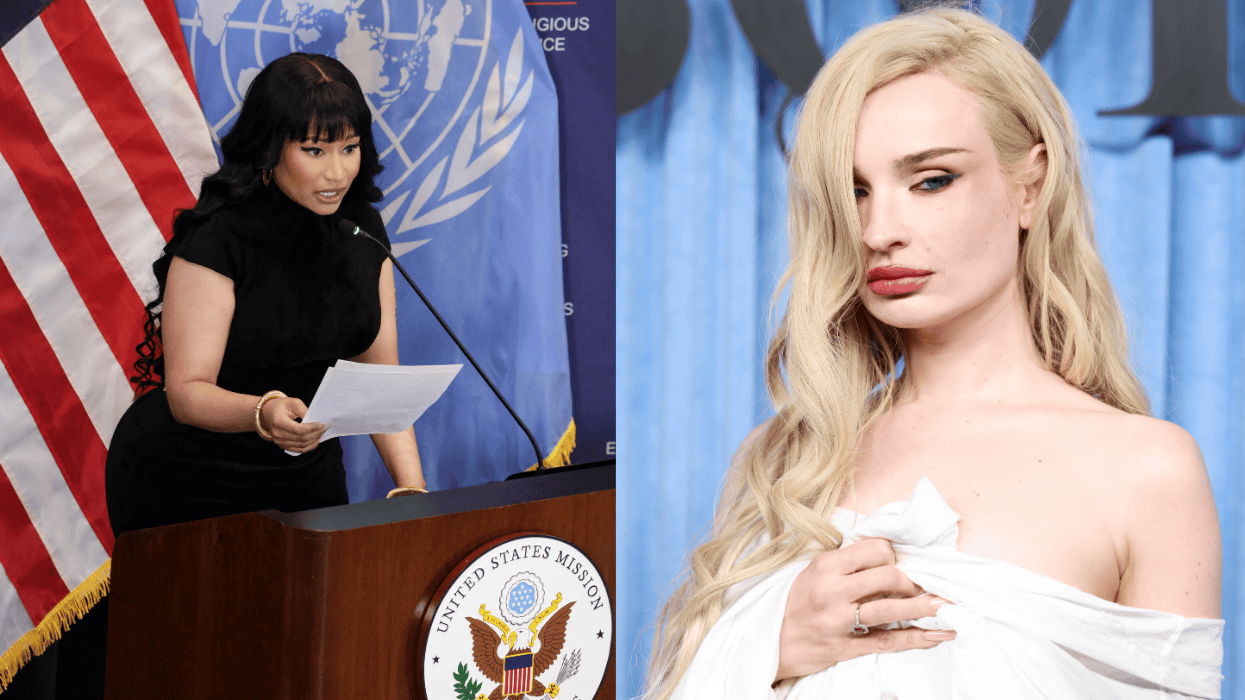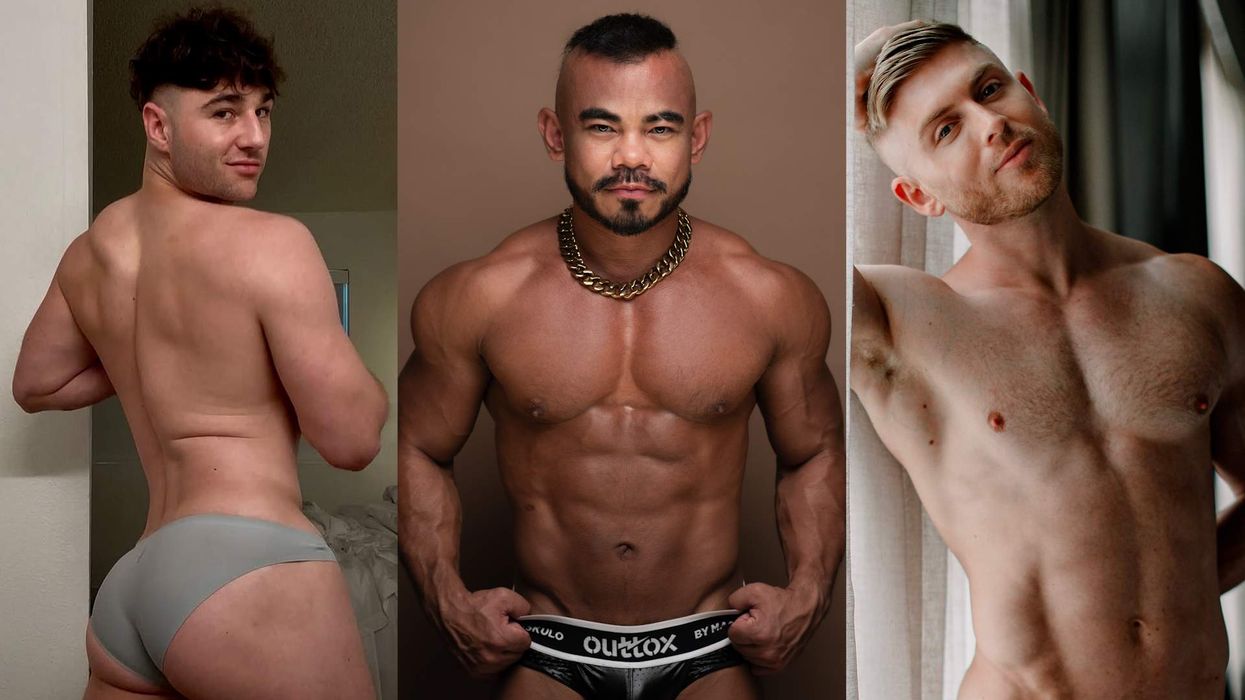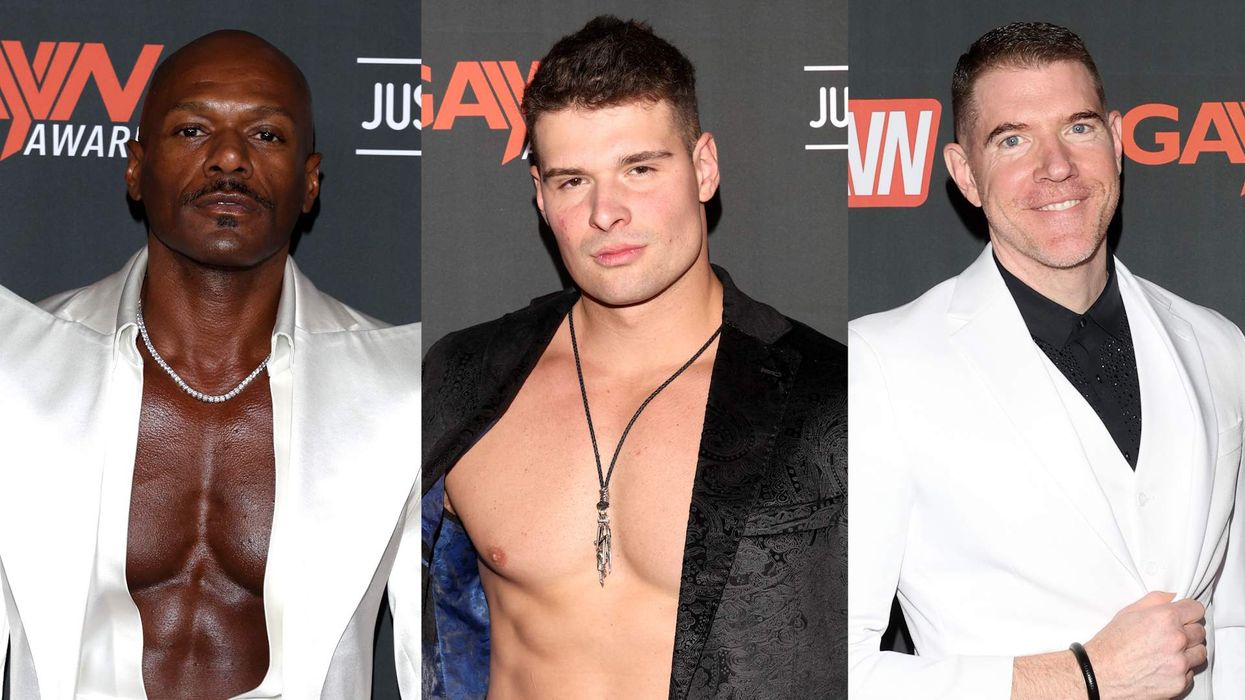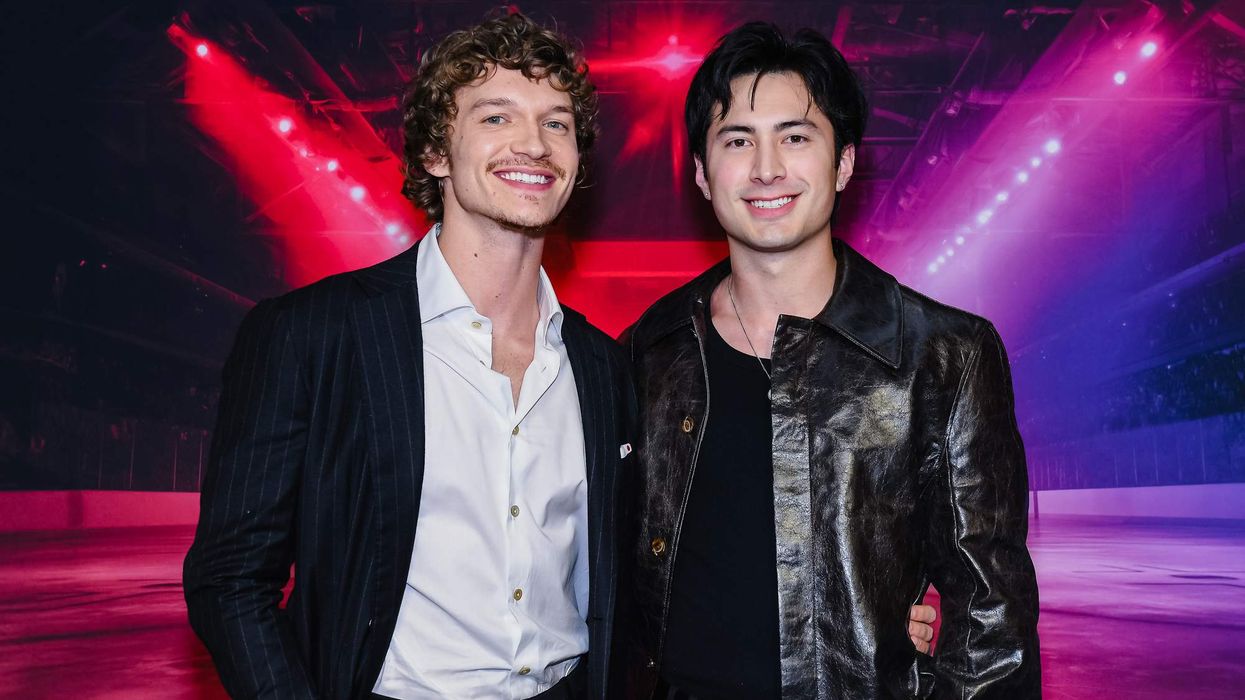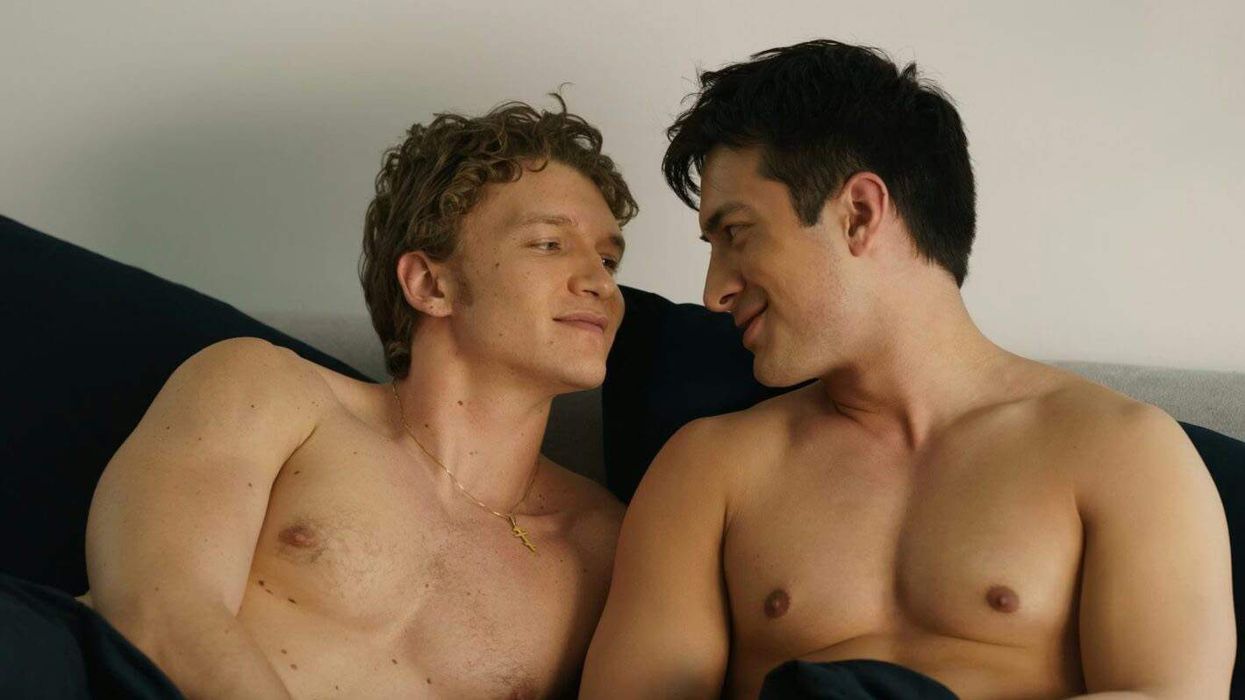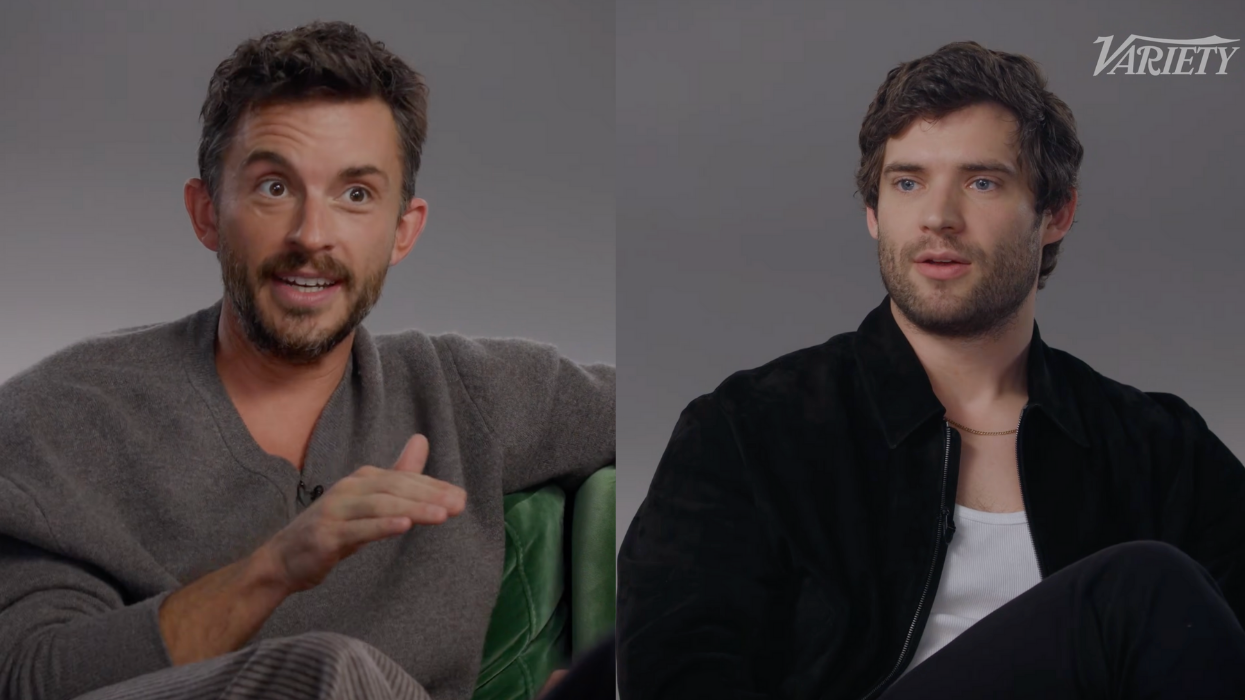Illustration by David Pohl
At a recent party that brought me out of New York and back to my hometown, a girl I used to know, a friend of a friend (let's call her Amber), turned me into a veritable charity case. She rubbed my shoulder, telling me, "I'm so happy for you," as if those five magic words might grant me the strength to drive home. It took me a minute to grasp what she was talking about, and what about me, exactly, she was "so happy for."
It's a sentiment I've been handed countless times as an out gay man: "I'm so happy for you." That may sound swell, but it's made me recoil with its unwitting air of condescension. It's often delivered by past acquaintances from high school, whom I've caught up with or bumped into after graduating into my grown-up world.
I've changed, for sure. I wasn't gay in high school -- at least, I didn't think I was. While I was always an arty non-athlete, and people had their suspicions, gay was the last thing I wanted or knew myself to be. I was a cool kid; hooking up with girls was a prerequisite. It wasn't until college, when ostensibly vital high school ties began to loosen, and biological signals started chipping away that wall of denial, that the struggle of accepting my sexual truth became my reality.
But virtually no one from my high school was aware of that struggle. No one saw the journal pages loaded with furious confessions, and no one heard the nightly questions I asked myself -- like whether my father would prefer a gay son or no son at all. I have heard "I'm so happy for you" from the few real friends I've retained from my denial days, who've grown to know the me who's overcome the tricky climb of coming out. But their utterances don't have the same ring as those of Amber and her ilk, who don't know anything of my personal life, beyond the facts that I'm gay and in a relationship. Is the tripping of my bigotry alarm justified in these cases? I doubt these people want to make me feel as if I've been both hugged and slapped. But what they seemingly fail to consider is that my life today doesn't involve a daily back-pat about waking up next to a man, much less some dreary look in a rearview mirror.
All of this relates to the concept of "straightsplaining," which concerns straight people aiming to make sense of the gay experience through their straight lenses, and which Gawker writer Rich Juzwiak dissected in a "Field Guide" published in February. Juzwiak divided his study into 12 levels of ascending toxicity, and my culprits are probably down at level one, "Well-Intentioned." They probably do mean well, but they conspicuously aren't saying "I'm so happy for you" when reconnecting with all their straight high school peers. The implication is that what they're so darned happy about is simply seeing a second-class citizen still trucking. My optimism and better judgment assure me this is a learned, societally indoctrinated behavior, but that doesn't make it feel any less shitty. And while we should all be happy for the queer people who haven't destroyed (or taken) their lives because of difficulty, the knee-jerk, widespread presumption that it's hard out there for a gay makes it that much harder for gays to confidently make it out there.
But the Well-Intentioned aren't the folks whose declarations of being "so happy" for me have stung the worst. I've now been with my partner, Brandon, for more than six years, and the first three of those were no picnic when it came to my father. When Brandon and I would visit my parents' house, my dad would conveniently find detours on his way home from work to avoid us. It was rare that you'd see all three of us at the same family function.
Since then, my bond with my father has evolved to become more mutually respectful than ever, and he's insisted that his neglect was never meant to harm, but was merely born of his own discomfort. But through it all, what bothered me most were the periodic kudos from onlookers, who'd blurt out their "I'm so happy for you"s every time my dad made a baby step toward acceptance. His sitting with me and Brandon at the Thanksgiving table was viewed as a heroic achievement, as was any instance in which he spoke more than a muffled "hello" to Brandon. Of course, these developments pleased me, too, but only because I was seeing my father behave like a human -- not because I was thrilled that he'd deigned to overcome some perfectly understandable, generation-gap hurdle of heteronormative thinking.
Per Juzwiak's field guide, friends of my family -- and, in some cases, my family members -- would be classified in level five, the "Apologists," who are so accustomed to queerness being viewed as inferior that any deviation from that view is seen as cause for applause, a tendency fueled by a far too common "it could be worse" mentality. It could have been worse: I could have been beaten; I could have been disowned; or as International Olympic Committee member Dick Pound (whom Juzwiak mockingly quotes in his article) so eloquently put it in January, I could have been put to death if I lived in Malaysia. But does the fact that I don't, and haven't, mean that I should be "so happy" like my brainwashed cheerleaders? Apparently.
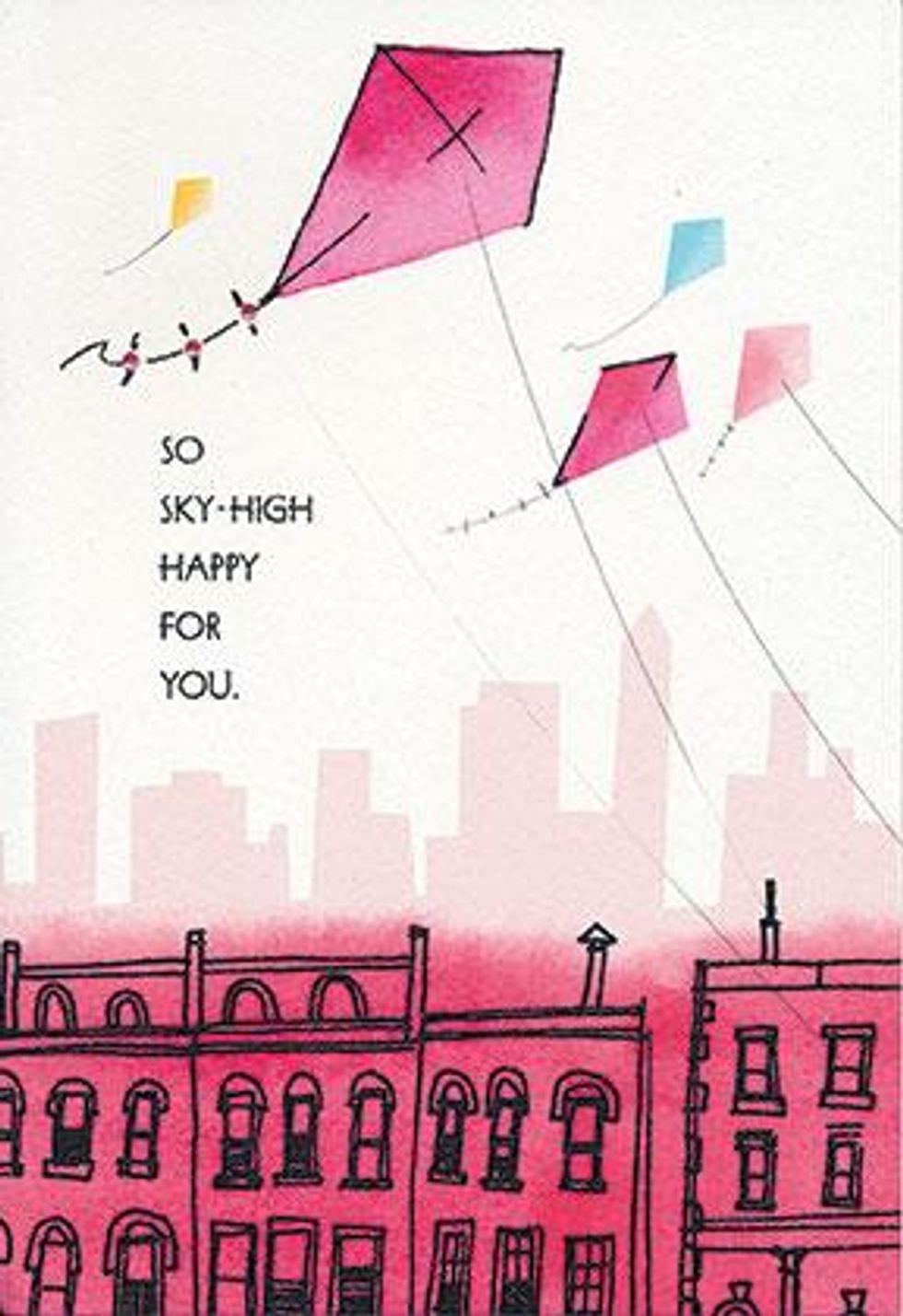
In less than a week, I traveled back home for my best girlfriend's 30th birthday party, and I was met with a lot of "I'm so happy for you"s. This time, though, not one of them set off the straightsplaining sirens, because each was in reference to an achievement for which anyone could be congratulated, no matter who's in his bed. Unlike the awkward, perplexed responses I'd given to Amber, my "thank you"s actually felt like gratitude.
When I got home, there was a card in the mail from my parents, also related to the job. "So sky-high happy for you," it read on the front, alongside pink kites flying above city buildings. As always, the card had been picked out by my mother, but both she and my father signed it, and I smiled when I turned it over, wondering if he'd noticed it was part of Hallmark's Sarah Jessica Parker collection.



